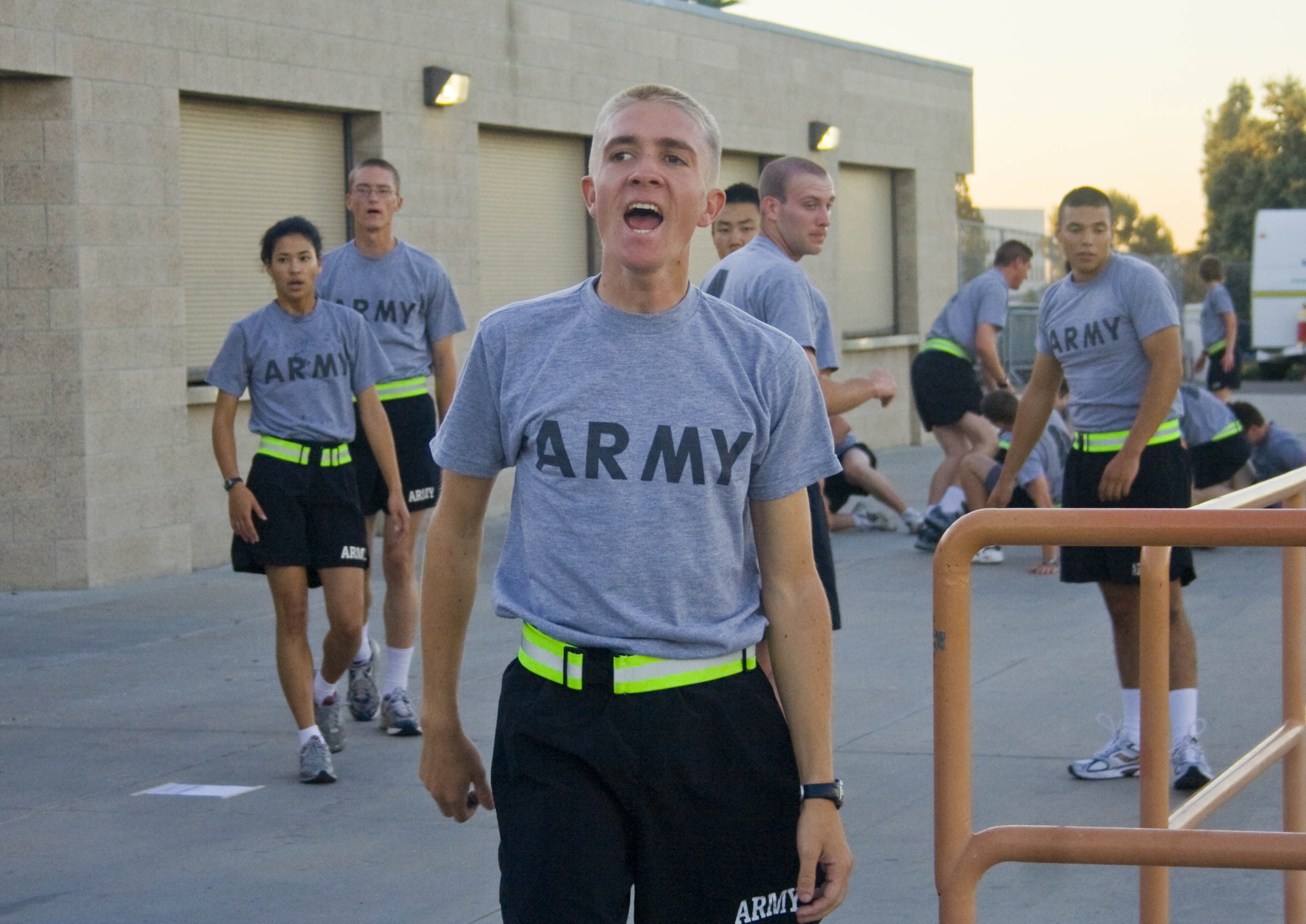It’s five in the morning. Time to get moving.
Up stairs, down stairs, across the field, always keeping in step. Maintaining concentration, backbone, spirit, and awareness. Some may falter and others may lose last night’s dinner on the training ground. Regardless, the rhythm continues and the sweat won’t hold these students down.
This is not your average early-morning class.
There’s a general consensus that college students treasure their beauty sleep. However, many Biola undergrads are voluntarily beating the sun out of bed. What kind of motivation propels them into action?
Enter the Reserve Officer Training Corps. This “enlistment program for the non-enlisting,” paradoxical as it may sound, has attracted thousands of students from schools all over the country. The program works as an elective curriculum taken in conjunction with required college classes.
Aaron Valencia, a student at Biola and employee at the battalion affairs office, joined ROTC because of television advertisements. He said it “seemed honorable,” and with the added influence of his ROTC-involved roommate, he joined despite the hesitations of his parents.
Valencia said he thinks it was worth it.
“I have already gained and grown,” he said.
He said this growth has been both mental and physical. As an example, Valencia said he was afraid of heights prior to his involvement, and has now overcome his fear.
“It takes you out of your element, and puts you in a situation that helps you adapt,” he said.
Biola’s ROTC students are drilled Monday, Wednesday and Friday at California State University Fullerton from 6 a.m. until anywhere from 3:00 to 5:00 in the afternoon. Some even attend on Tuesdays. Those enrolled generally participate for six weeks between sophomore and junior year, and then six more weeks between junior and senior year.
However, this sacrifice is not without reward. Participating students receive scholarships based on level of commitment, which varies depending on the branch of the ROTC that they select. Recruits who decide to be part of the corps without attending school get an allowance for living expenses, but students who participate often find it the most beneficial.
ROTC participants even have the opportunity for offsite training, as Valencia explained. He said that the recruits in his area will soon be making a trip to the reputable Camp Pendleton in San Diego.
Deanna Williams is a Biola Air Force ROTC recruit who wants to have a career in military psychology. She said she believes “it’s best to experience in order to understand.”
By going through corps training, she learns best how to both study and apply the concepts she learns in class, she said. In addition, she found that her military experience overflows from the program to practicality.
“A lot of the skills they teach at ROTC are applicable to other areas, like relationships,” she said.
Williams herself aspires to one day become a lieutenant colonel, or an officer of similar rank, and continue work in this arena that “really challenged [her] to be a better person.”
Students who graduate from the program are awarded the bar of a second lieutenant and are supposed to walk away with a sense of both purpose and confidence.
Within college ROTC circles, the view of the program is favorable, but the program seems to have gained little notoriety beyond of word-of-mouth recommendations. However, according to senior Rob Stevenson, military enthusiast and Marine Officer Candidate, programs like this need to be endorsed and then spread among colleges.
“It’s not good for a country to be bifurcated between the academic elite and those who fight for the elite,” Stevenson said. “It is best for the thinkers to be the fighters.”
For more information, visit www.goarmy.com/rotc.







